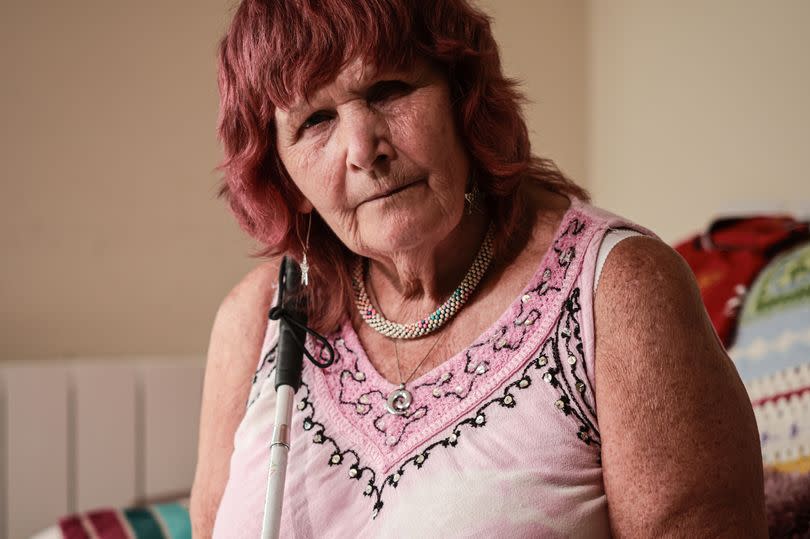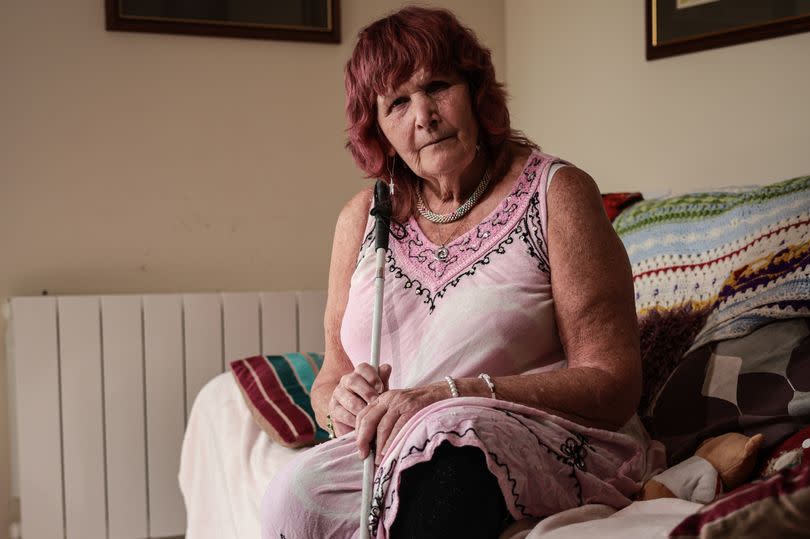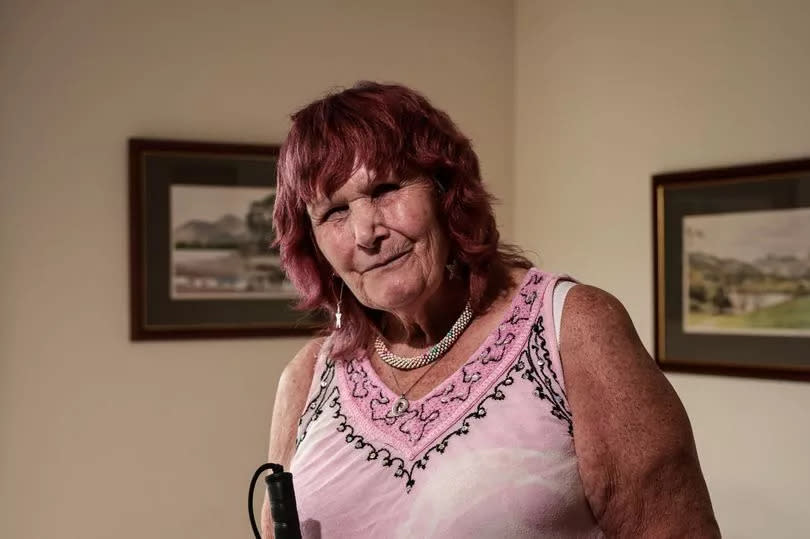'From one moment to the next everything went dark - now I'm too embarrassed to go to a polling station'

Mosie was walking into her opticians when everything suddenly went dark. The then 63-year-old had booked the appointment because of a minor complaint she’d developed in her left eye.
What followed was a life-changing diagnosis. She had gone blind. A shingles infection she’d had eight months previously had flared up and reached her optic nerves, causing permanent damage.
For the Horwich resident, who spent the last few years travelling the world and working part-time as a teacher, her sight loss was a 'major adjustment'.
READ MORE: Huge emergency response as boy, 14, goes missing while swimming in River Mersey
She's no longer able to vote independently. “The first time I went to a polling station after I went blind, I was so embarrassed,” she told the Local Democracy Reporting Service.
“A friend took me there and I thought she’d come to the booth with me and help me vote - but she wasn’t allowed to. The staff there didn’t know what to do. It was like they’d never encountered someone like me before and were scared of getting in trouble.
“Eventually, they did let my friend to the booth with me. But the whole thing was so embarrassing I thought: I’m never doing this again.”

That was eight years ago. Mosie, now 71, has never entered a polling station since. She does vote - and has done so all her life - but has do so by post because she doesn’t want a repeat of her bad experience.
It’s an imperfect solution. “I do feel like I’ve had my independence taken away,” she said. “You really have to trust the person who’s making that X for you.”
Last time she voted, she wasn’t sure if it had been counted because the person responsible for her vote had made a mistake with the voting envelopes, Mosie told the LDRS.
She added: “With the way technology is today, surely they could find a way to let people vote online? You’d think it would be quite simple.”
Local authorities now provide more support for visually impaired voters - with equipment like tactile voting devices and rules allowing those with disabilities to use their phone at the booth for assistive apps. But the roll-out has been inconsistent across the UK and gaining access to support isn’t always as straight-forward as it should be, according to campaigners.

Only 13 per cent of people registered as severely sight impaired and less than half of people registered as sight impaired were able to vote independently and in private at the last election, according to charity group Henshaws.
And the Royal National Institute of Blind People (RNIB) recently launched a campaign for the ‘right to vote secretly’. They called on government to make an audio and tactile combination, which has worked where it has been implemented, a national requirement.
Martin Wingfield, a director at RNIB, said: “It’s been over 150 years since people have had the right to vote in secret, but this still isn’t afforded to many of the 2 million blind and partially sighted people who still face significant barriers to voting independently.
“RNIB is calling for this to be last election that blind and partially sighted people can’t vote in secret and to resolve this once and for all.”
Casting a ballot isn’t the only part of the democratic process that isn’t accessible for the visually impaired. Mosie feels the community is ‘forgotten about’ during campaign season too.
Mosie said: “The literature that comes through the letterbox - it’s all printed, it’s all text. Nobody thinks about the people who can’t read. It annoys me that they don’t think about that.”
And, she noted, there didn’t seem to be a whole lot in the way of support for people with visual impairments - and other disabilities - in party manifestos either.

The retired teacher says she’s come to terms with her loss of vision - and independence. She’s found ways to keep her adventurous streak alive, from working with several sight loss community groups, to watersports holidays and being whirled around Wigan racetrack.
She’s found a way to stay involved in many different spheres of life.
But in the election arena, it’s a different story. Asked if she felt like those with visual impairments were neglected in the democratic process, Mosie said “Yes, definitely. We’re not important [to them].
“It’s just difficult feeling like you can’t join in.

 Yahoo News
Yahoo News 
